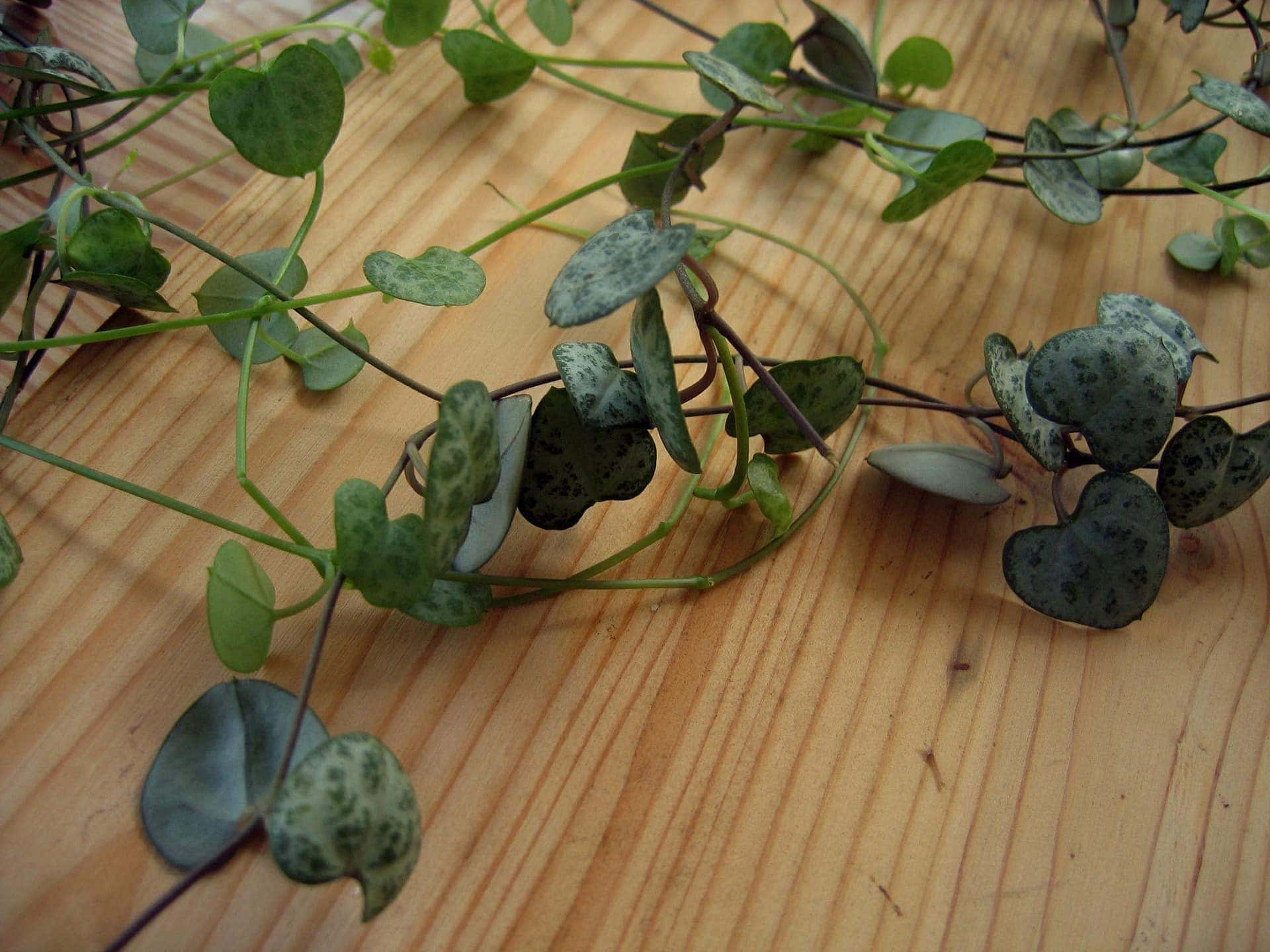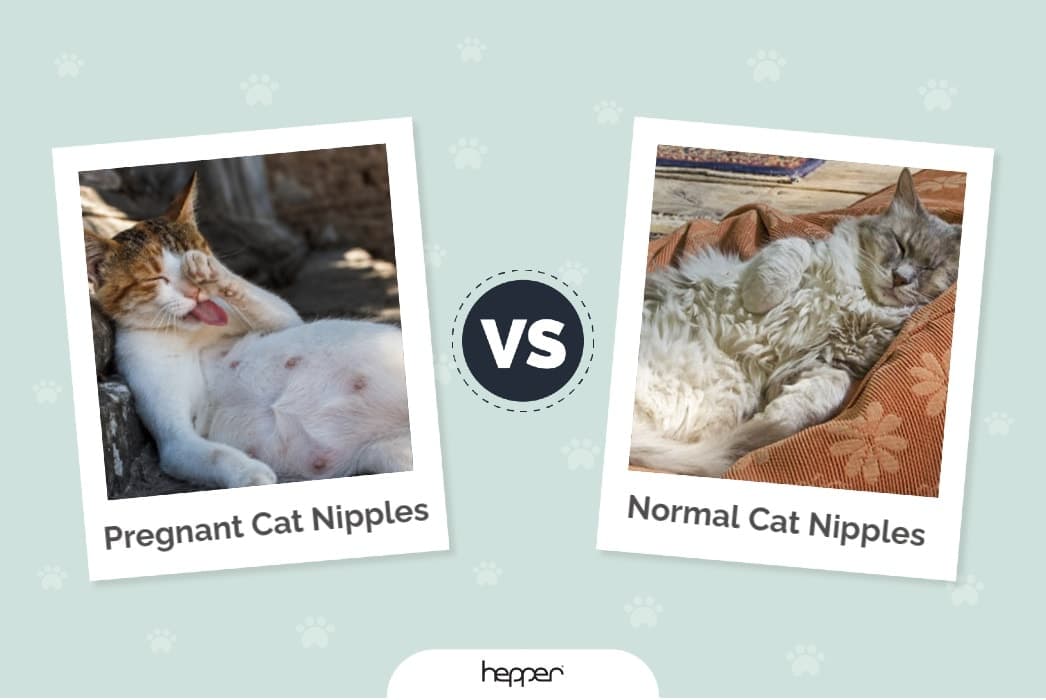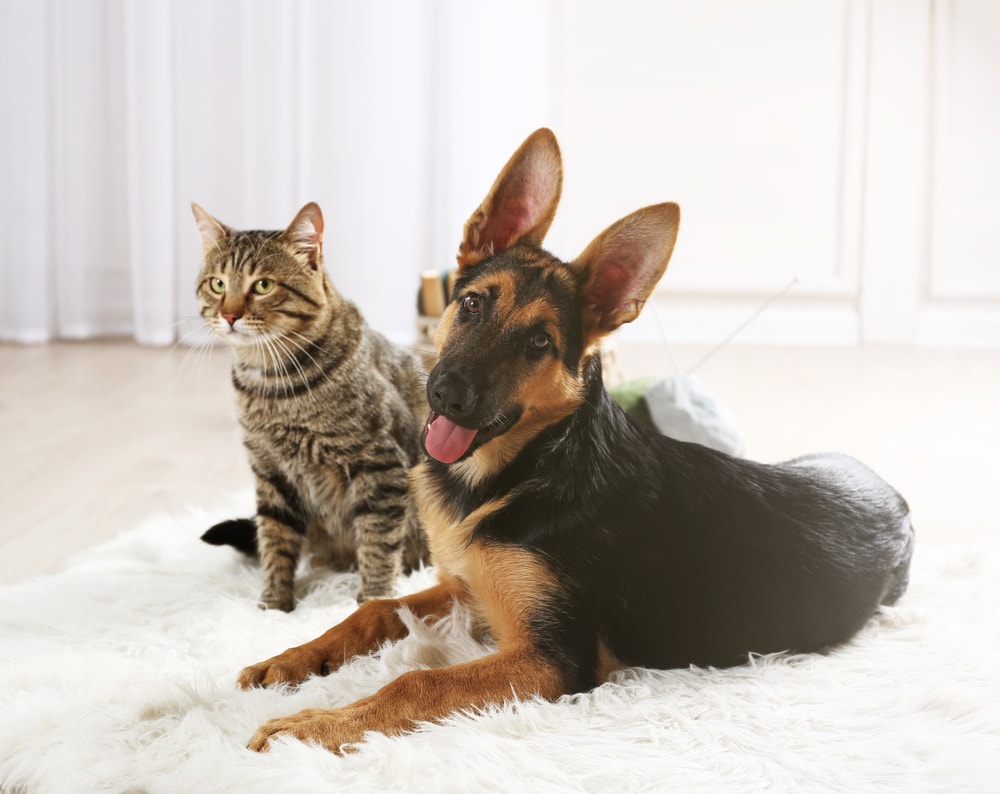Does Vinegar Kill Fleas? Safety & Effectiveness Revealed
By Beth Crane
Updated on
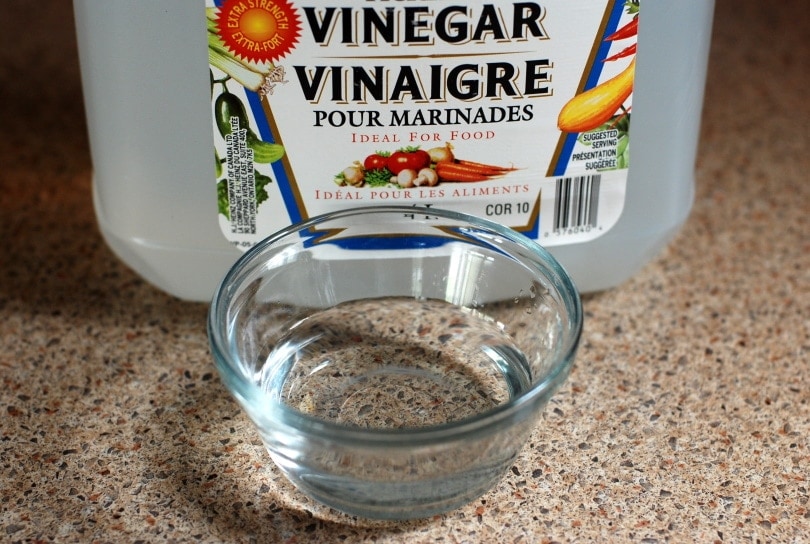
Click to Skip Ahead
Natural pet care has grown in popularity, with many owners looking at alternative ways to treat their pet’s problems. However, some issues need professional treatment to be treated safely and effectively, and treatment for fleas is one of these! Unfortunately, vinegar doesn’t kill fleas and won’t treat an infestation. Read on to find out how to treat fleas effectively and if vinegar can help!
Can Any Type of Vinegar Harm Fleas?
White vinegar, apple cider vinegar, rice, balsamic, or malt vinegar won’t affect fleas at any life stage, not adults, larvae, pupae, or eggs. That is because fleas and their eggs have protection against their environment, and vinegar isn’t a strong enough acid to affect them.
Fleas are very hardy, and vinegar can’t penetrate through the eggs or the bodies of the larva and pupae. Adult fleas don’t like vinegar, but it can’t harm them or stop them from biting your pet to feed.
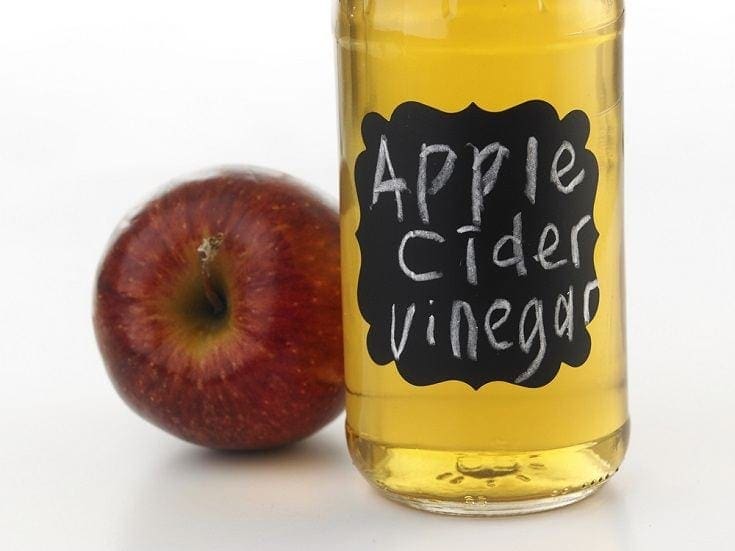
What Are Fleas?
Fleas are tiny wingless insects that are parasitic in nature. Fleas jump onto their hosts (cats, dogs, and other animals) and live amongst their fur. Fleas will bite their hosts and drink their blood as food. Most of the fleas on pets in the US are cat fleas (Ctenocephalides felis), but they infect cats and dogs despite their name.
Fleas also bite humans but can’t live on our bodies, so they jump on, bite, feed, and jump off. Once adult fleas have bitten and fed, they will mate and begin to lay their eggs, starting the flea lifecycle.
Fleas can spread diseases between animals and humans, and the most famous example of this was the bubonic plague in Europe and Africa from 1346 to 1353. This was spread by fleas, resulting in the deadliest pandemic ever recorded. The world experienced two more waves of the plague that didn’t end until the early 1900s.
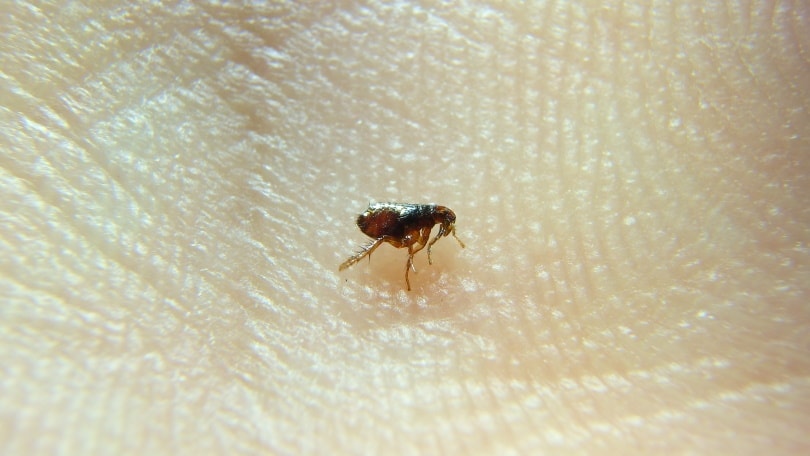
Why Are Fleas So Hard to Get Rid Of?
Fleas are robust parasites and have a very complex lifecycle composed of four stages. Some of these life stages are more resistant to insecticides than others, meaning they must be treated differently. To understand why they’re so stubborn once they’ve arrived, we need to understand the flea lifecycle:
Adult
Adult fleas are prolific egg layers, with the females laying up to 50 eggs a day in a pet’s fur. The pet carries them around the home, where they fall off and disperse. They then feed on a host and search for a mate immediately afterward.
Egg
The sticky eggs that fall off pets get into crevices and cracks throughout the home. The time a flea stays in an egg depends on certain environmental factors, such as temperature and humidity. Eggs typically hatch within 10 days.
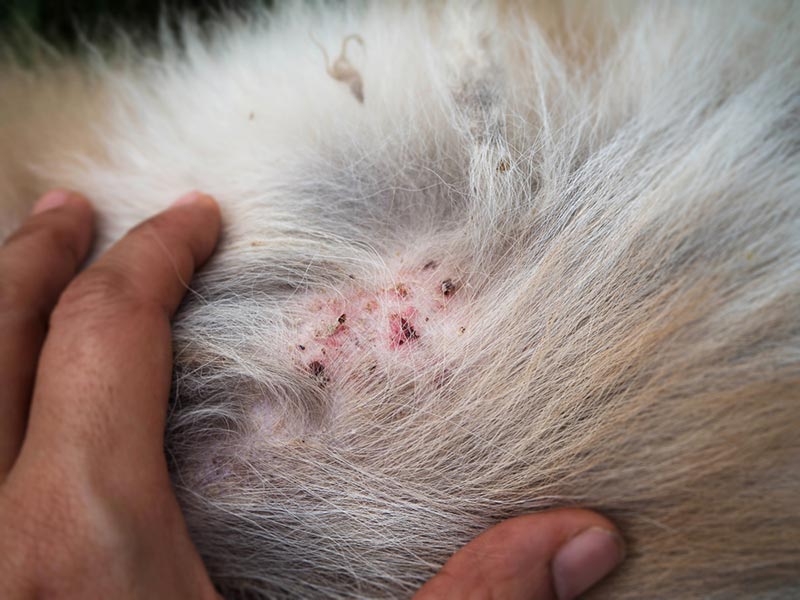
Larva
Flea larvae will leave the egg and search the immediate environment for food. Larval fleas don’t usually drink blood (unless they can find a ready source); instead, they eat flea poop! Commonly known as flea dirt, flea poop will drop from your pet onto the floor, which larvae will eat. After that, they can move freely, feeding for 15–20 days until they enter the next stage of development: the pupal stage.
Pupa
Flea larvae will create a cocoon and encase themselves in it. This stage is called the pupation stage, and a flea larva will stay in this cocoon for as long as several weeks, if needed, while it develops into an adult flea. Pupae are protected from many insecticides at this stage. Adult fleas will only emerge from the cocoon once they sense a host nearby by feeling heat and vibrations. Within a few hours, the adult will feed and be ready to mate, beginning the cycle again.
Because fleas are resistant at different stages, they need to be treated aggressively, and it can take some time before they’re completely eradicated. Frequent vacuuming,washing of a pet’s bedding on a hot wash, repeated household insecticide application, and treatment of pets with effective flea control products are the best ways to get rid of fleas!
Will Giving My Pet Vinegar To Drink Kill Fleas?
Despite the idea that fleas are killed or repelled by vinegar, no vinegar (including apple cider vinegar) will repel or kill fleas if you give it to your pet to drink or put it on their fur. In addition, vinegar can harm your pet, so it’s advised not to allow them to drink it or put it on their coat.
Because vinegar is very acidic, it can irritate your pet’s esophagus and gastrointestinal tract causing pain, vomiting and even ulcers. It’s unpleasant for everyone involved, and it won’t deter fleas!
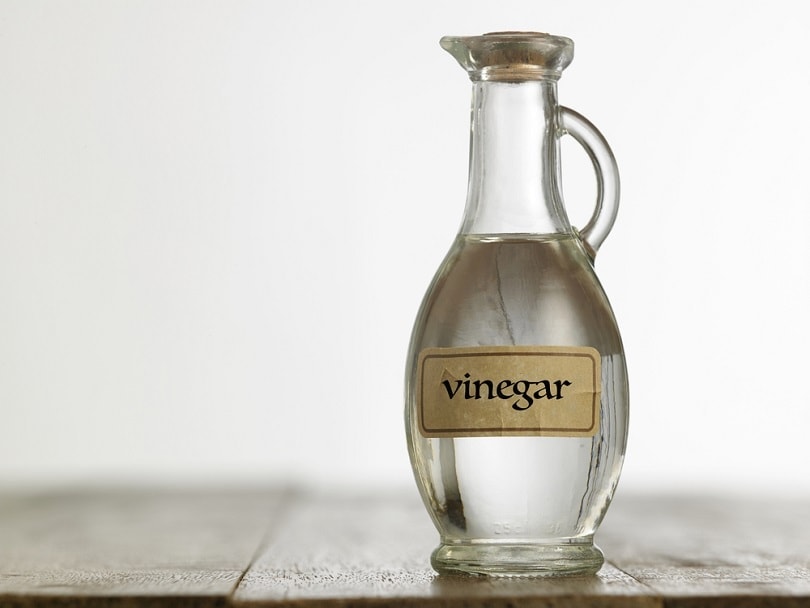
What Is the Best Way to Treat Fleas?
The best way to treat fleas is to use veterinarian-prescribed medication to apply on your pet and an insecticide to use in your home. While insecticide use might be alarming for some people, nearly all commercially available insecticide spray is completely safe if applied correctly.
Most pesticides contain chemicals that kill adult fleas and interrupt the growth cycle of flea eggs and larvae. Although commercial sprays may reduce the population, most will not eradicate a severe infestation. Professional pest control technicians can eliminate an infestation and frequently return to ensure the fleas are gone.
Treating your pet is easier, as most pets have a few options for monthly preventative flea treatments. However, it’s safer to get a prescription from your veterinarian to treat fleas than buy medication on your own. Your vet will weigh your pet and select the ideal product to eliminate the fleas.
Safety Tip: Permethrin, an ingredient in flea sprays and some dog flea treatments, is extremely toxic to cats. You should never use dog flea treatments on cats. If you suspect your cat has been exposed to permethrin, immediately take them to your veterinarian.
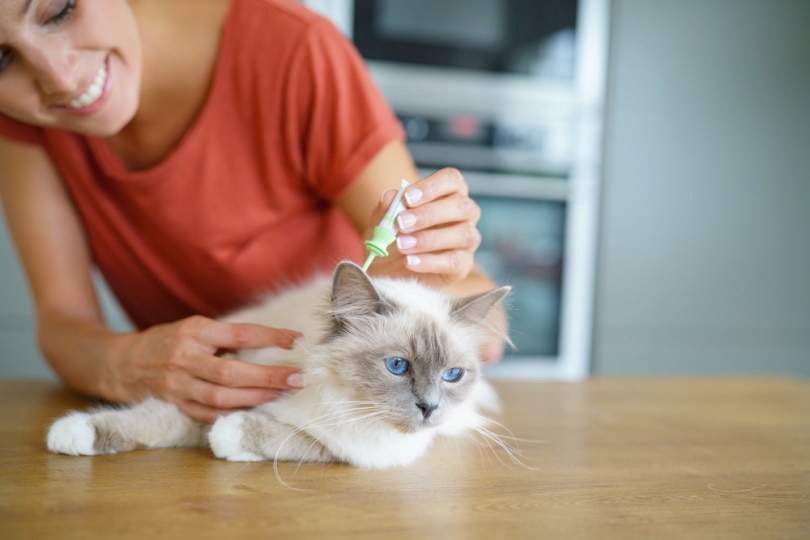
Are There Any Natural Flea Repellents That Work?
The jury is out on whether there are any “natural” treatments for a flea infestation that repel fleas. While vinegar is known to be ineffective, a study on natural flea repellent (performed in 2020) showed interesting results. The study looked at the effectiveness of a food supplement given to dogs that contained several plant extracts such as thyme, fenugreek, lemongrass, and rosemary.
Of the dogs tested, significantly fewer fleas were found on the dogs given the supplement than those that weren’t. However, this is one study, and the dogs given the supplements still had fleas on them. If a pet has fleas, they can spread and multiply in the home.
Final Thoughts
Vinegar will not repel or kill fleas and is ineffective in treating flea infestation. Vinegar doesn’t have the acidity needed to damage a flea’s body at any stage of its life cycle, and it will still bite a pet who has eaten vinegar or had it applied to its skin.
Therefore, the most effective way to kill fleas at every life cycle stage is to use monthly medication on your pet (prescribed by your veterinarian) and use a special home insecticide flea spray . Ultimately, the best preventative method for fleas is a monthly treatment for your pet, which can prevent them from invading and taking over your home in the first place!
Featured Image Credit: Piqsels


